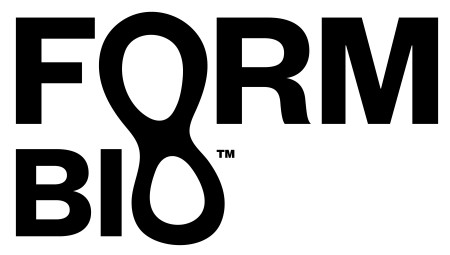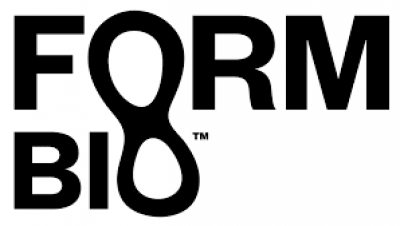New Cell & Gene Therapy Solutions From Form Bio Analyze Billions of Potential Construct Candidates, Reducing Time-to-Clinic

DALLAS, September 14, 2023 (Newswire.com) - Form Bio, the provider of advanced computational life sciences technology, announced today capabilities for cell and gene therapy companies to rapidly model billions of potential construct candidates. With great progress to date but headwinds around safety and manufacturability, Form's new solutions help therapy developers find the safest and highest-yielding versions of their therapies.
The new in silico solutions combine Form's technology, data and expertise to help cell and gene therapy companies create programs that significantly shorten the critical development stage between early discovery and pre-clinical regulatory filings. Noteworthy among the new program capabilities are:
- Drug Product Characterization: Detailed analysis of the manufactured drug product, including proportion of full viral genomes to non-therapeutic packaged species like truncated and chimeric sequences, variant detection, and alignment coverage across sequence regions of interest. Insights from this report are now being used as part of the CMC package in successful interactions with regulatory agencies.
- Multi-Candidate Comparison: Comparing the safety, yield and expression of multiple candidates with different regulatory elements, and to measure how changing backbones, rep/caps, plasmids, capsids, ITRs, promoters, introns and polyA elements effects yield, safety, and expression. This comparison tool allows for exponential design iterations for each gene of interest with hundreds of thousands of parameters to pinpoint the highest-performing candidates aligned with clinical success criteria.
- Bioreactor Simulation: Candidate therapeutics are tested in silico for production output in a virtual suspension-cell bioreactor for viral packaging outcome, plasmid molar ratios for triple transfection, and reactor parameters like cell density and volume.
- Gene Expression Prediction: Analysis of mRNA for transcription and translation efficiency to predict the levels of therapeutic protein production.
- Immunotoxicity Analysis: Scoring of the potential risk associated with CpG islands and other viral genomic patterns in the therapeutic drug product.
- AI-Powered Candidate Optimization: Large language models and deep learning to analyze billions of possible versions of a therapeutic construct to identify the version, or versions, with the highest predicted yield and safety to improve efficacy and likelihood of clinical success.
The combinatorial analysis of data along the drug development path has led to important new discoveries for improving therapeutic output, including structural understanding of DNA and mRNA that can be predictive of truncation events leading to non-therapeutic drug products.
Form Bio's solutions are backtested against real-world results from customer benchmark data and public literature. In silico outcomes are validated with wet lab experiments in collaboration with academic and CDMO partners to confirm and further train model predictions for truncated species, mRNA and protein expression, and protein function.
"While applying AI has started to take hold in early drug discovery and clinical stages of cell and gene therapy, we believe that the development stage is ripe for improvement via in silico solutions that can reduce time-to-market while improving yield and safety," said Andrew Busey, co-founder and co-CEO for Form Bio. "By combining data, technology and expertise with a focus on this, often, years-long stage, we're proud to help our customers augment their science to reach their next breakthroughs faster, less expensively and with better results," he added.
Once a cell or gene therapy potential product has been designed, and after candidate development has begun, therapeutic developers often find that the drug product as designed cannot yield enough doses to be developed with feasible economics. Relatedly, an efficacious product is often contaminated with empty or partial capsids, which can spur off-target effects, toxicity, immunogenicity and other deleterious results.
Since most cell and gene therapy constructs can be shaped by design choices for eight to 10 different key elements beyond the therapeutic gene of interest, fully exploring the totality of possible vector designs requires analyzing up to billions of possible unique candidates. Form's new solutions provide the computational capabilities that enable scientists to explore and model the broadest possible range of vector designs—in a way that augments and amplifies contemporary scientific experimental processes and methods.
In addition, all computational activities are rigorously tracked so that CGTs maintain the highest level of data provenance, reproducibility and regulatory reporting preparedness as it pertains to in silico experimentation.
"Form Bio's new solutions for cell and gene therapy development provide a crucial and innovative solution for the challenges therapy developers face when advancing drug products from initial discovery to clinical stage preparations," said Bryan Holmes, VP of Digital & Technology Solutions for Andelyn Biosciences, a leading gene therapy CDMO. "With the length and complexity of the development process producing such an enormous trove of data, Andelyn is looking to help cell and gene therapy companies stand to make meaningful improvements to their timelines, unit economics and overall success by harnessing in silico technology and solutions like the ones Form offers," he added.
The new capabilities are offered by Form Bio as full-service solutions that incorporate advanced, purpose-built AI/ML models trained on multiple public and proprietary nucleic acid-based datasets, Form Bio's award-winning bioinformatics platform and the company's accomplished team of computational life sciences professionals with expertise spanning biology, bioinformatics and data science.
The new solutions can be used by vector design, analytical development and process development teams and other translational scientists to complement laboratory experimentation and overcome the design, analysis and scale-up challenges that commonly prolong drug development and put severe pressure on capital runways.
The new solutions are available today. For more information, visit https://formbio.com.
About Form Bio
Form Bio provides award-winning software and AI solutions to biopharma leaders, empowering them to accelerate their most ambitious scientific objectives. By combining data, technology and expertise, Form's solutions accelerate timelines from discovery to clinic by providing drug developers with rapid in silico characterization, simulation and optimization of their therapeutics—enabling higher yields, enhanced safety and shorter, less expensive development cycles. With cross-disciplinary expertise spanning software engineering, biology, bioinformatics and data science, the Form Bio team collaborates closely with customers on their most pressing and strategic challenges and opportunities. For more information, visit formbio.com.
Source: Form Bio
